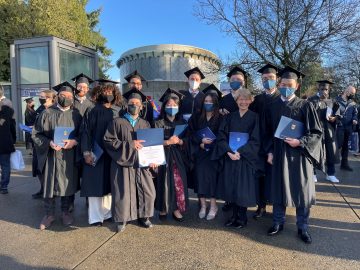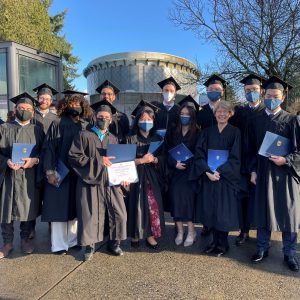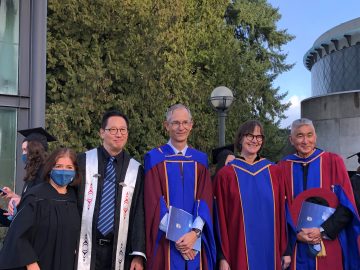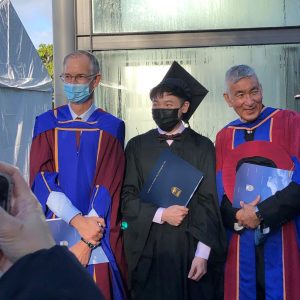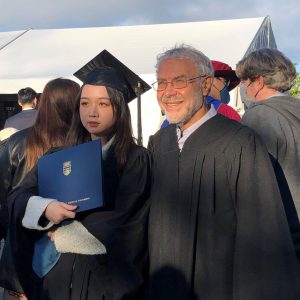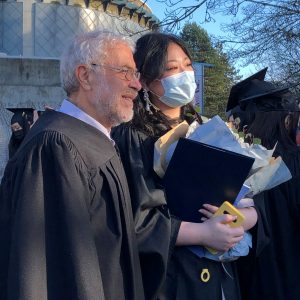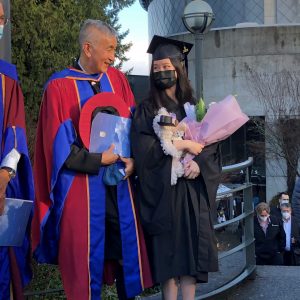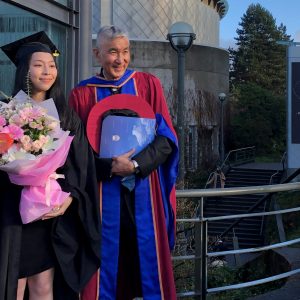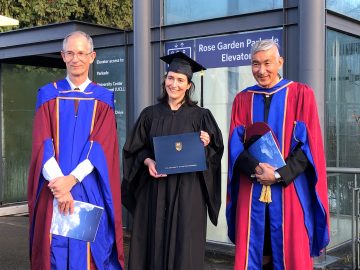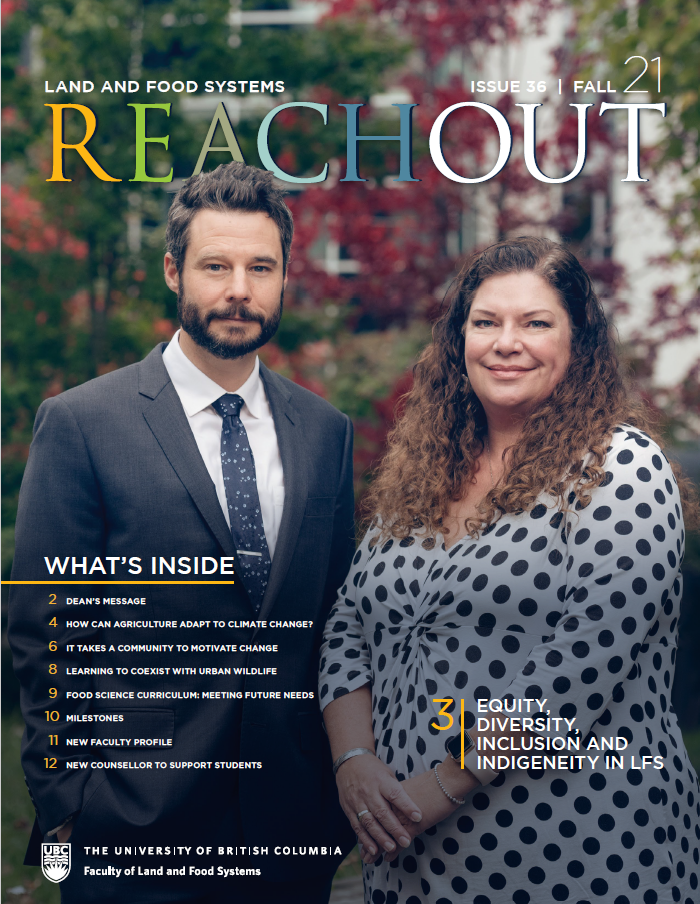Message from the Dean for LFS Community Connects: December 2021
Message from the Dean for LFS Community Connects: December 2021
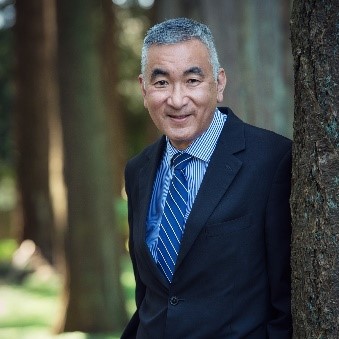
I hope that you are preparing to ring in the holiday season with friends and family. I am cautiously optimistic that our family gatherings will still take place over the holidays, but I’m keeping an eye on the Omicron variant to see if it impacts our travel to Ontario.
This year has certainly been tenuous as we continue to live through the pandemic, but we have managed to return to some normalcy at UBC – teaching students in-person, conducting research in labs again, and launching a hybrid model of work for faculty and staff – I want to congratulate everyone in our faculty for meeting the challenges of COVID!
The other threat looming is this year’s climate-related events. In B.C. and around the world, these devastating events have served as a wake-up call to accelerate and address concrete ways to mitigate the impact of climate change. That means taking action today – not leaving it to the next generation to figure out.
At UBC, we have set a goal of achieving net-zero emissions by 2035 at the Vancouver campus, which is 15 years ahead of the previous target date. Through its Climate Action Plan 2030, UBC has committed to tackling emissions more proactively.
UBC’s big three sources of emissions are campus building and energy use, commuting to/from campus, and the campus food system. Within the next decade, 100 per cent of the district energy used to heat campus buildings is projected to come from low-carbon sources. The university will continue to advocate for SkyTrain from Arbutus all the way to Vancouver campus , as well as institute other more sustainable commuting options.
Tackling the campus food system, the university plans to address all components of UBC’s food system – food production, service providers, consumers, and food waste recovery. For LFS, this is an opportunity for our researchers and students to continue their interdisciplinary work to advance climate-friendly food systems, campus-wide.
I’m proud of the LFS researchers who are leading projects addressing climate change, many of whom are looking at these critical issues using cross-disciplinary expertise.
This includes our outstanding faculty members investigating variability in climate and its impacts on plant health and disease resistance; plant-soil interaction; health of early-stage finfish; among other areas. We also have researchers investigating rural and environmental sociology and the tradeoffs between livelihoods, biodiversity and food security outcomes, and constraints related to farm size, land tenure, and the inequitable distribution of resources.
For many in our alumni community, the impact of this year’s climate events have made for a long road ahead in rebuilding and recovery.
Many of us are taking action to build stronger and more resilient communities and we aim to support you.
I wish everyone a Happy holiday – and please don’t hesitate to contact me if you have ideas or suggestions.
Stay safe and well.
Cheers,
Rickey Yada
Professor and Dean
LFS Winter 2021 Grad Ceremony
LFS Winter 2021 Grad Ceremony
A huge congratulations to our Class of 2021!
We were so thankful for the chance to celebrate our graduates in person in November 2021. The Faculty is proud of their resilience, dedication, and commitment to making the world a better place. Tuum Est!
Photos taken at Chan Centre
Tagged with: 2021, Graduate, Undergraduate
Assistant Professor of Teaching in Wine Science and Fermentation
Assistant Professor of Teaching in Wine Science and Fermentation
Posted on December 13, 2021
The Faculty of Land and Food Systems at the University of British Columbia, Vancouver, Canada (lfs-ps-2023.sites.olt.ubc.ca) is seeking an outstanding candidate for a full-time, tenure track position at the rank of Assistant Professor of Teaching in Wine Science and Fermentation, within the Food, Nutrition and Health Program and Wine Research Centre. The anticipated start date of the position is July 1, 2022.
Applicants will preferably hold a PhD in viticulture, enology, fermentation or relevant discipline. The successful candidate will teach courses in the area of wine science and sensory evaluation at the undergraduate and possibly graduate levels, with additional opportunities for new course development. The position requires effective communication skills and a commitment to educational leadership in creating innovative instructional environments in the classroom, laboratory, online, and field settings.
The successful candidate must have an established record of teaching and demonstrated teaching excellence at the undergraduate level. As an Assistant Professor of Teaching, the successful candidate will be engaged in educational leadership activities, including curriculum design and the development and implementation of innovative teaching practices related to lecture, laboratory, and other teaching and learning initiatives. The successful candidate will also participate in relevant service activities within the University and provide service to the academic profession.
The Faculty of Land and Food Systems is a recognized leader in sustainable agriculture; food, nutrition and health; and food safety and quality. The vision of the faculty is balancing our food system and planetary health to create a better world. The faculty focuses on student-centered and community-engaged learning to educate a new generation of scientists equipped to solve complex societal issues. The faculty hosts state-of-the-art facilities such as a mass spectrometry core facility, sensory evaluation lab, and Wine Library.
How to Apply:
Applications must be submitted online at https://ubc.wd10.myworkdayjobs.com/en-US/ubcfacultyjobs/job/UBC-Vancouver-Campus/Assistant-Professor-of-Teaching_JR5535
Applications should be uploaded as a single PDF file that includes a curriculum vitae, teaching statement (up to 3 pages), evidence of teaching effectiveness (such as course outlines and student evaluations) and a statement describing their experience working with and supporting a diverse student body.
Only applicants selected for further consideration will be contacted and asked to provide names and contact information of three referees familiar with their recent work. The closing date for applications is January 31, 2022 but applications will be accepted until a suitable candidate is found. If you have specific questions about the application process, please contact the Chair of the Selection Committee c/o melanie.train@ubc.ca.
Equity and diversity are essential to academic excellence. An open and diverse community fosters the inclusion of voices that have been underrepresented or discouraged. We encourage applications from members of groups that have been marginalized on any grounds enumerated under the B.C. Human Rights Code, including sex, sexual orientation, gender identity or expression, racialization, disability, political belief, religion, marital or family status, age, and/or status as a First Nation, Metis, Inuit, or Indigenous person. All qualified candidates are encouraged to apply; however, Canadians and permanent residents of Canada will be given priority.
Tagged with: 2021, Faculty, Food Nutrition and Health, Wine Research Centre
Sustainability Education Awards Recognize UBC
Sustainability Education Awards Recognize UBC
Two collaborative UBC papers were recognized as high-impact sustainability projects and pioneering research. Both thought-leadership papers received 2021 Sustainability Awards given by the Association for the Advancement of Sustainability in Higher Education (AASHE).
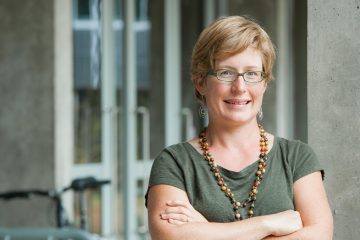
Hannah Wittman
Winning in the Engagement category for its position on how to strengthen links between public research institutions and grassroots seed movements to build a more resilient seed and food systems was a paper written by Hannah Wittman, Alexandra Lyon and Harriet Friedmann.
“We recognized the historically powerful role of public universities in both suppressing and commodifying diverse ways of knowing related to resilient and diverse farming systems in North America,” says Wittman, professor in UBC’s Faculty of Land and Food Systems and UBC Farm’s Centre for Sustainable Food Systems (CSFS).
“We also identified important responsibilities and opportunities for community-university collaboration in restoring and repairing these knowledge systems for social and ecological sustainability.”
The paper, published in Elementa: Science of the Anthropocene, examined the history of public research for seed systems in North America using a “seed regimes” framework. Since the mid 20th century, public agricultural research has increasingly focused on the privatization of knowledge, exacerbating inequalities among farming communities, and contributing to ecological degradation. The authors ask: Can public universities play a role in fostering seed sovereignty?, and demonstrated how community organizations are leading seed sovereignty organizing and freelance plant breeding projects to democratize seed research and knowledge, in some cases by strengthening links between public research universities and grassroots seed movements.
Professor Wittman wrote the paper with Alexandra Lyon, a former CSFS postdoctoral fellow who worked with Dr. Wittman and is a current faculty member at Kwantlen Polytechnic University, and Harriet Friedmann, a professor emeritus of Sociology, University of Toronto, who participated in the project as an International Visiting Research Scholar affiliated with the UBC Peter Wall Institute for Advanced Studies.
Another paper that recognizes addressing social inequities as being foundational to transforming food systems won first place in the Operations category.
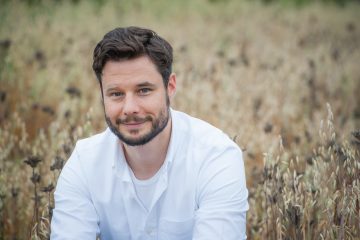
Will Valley
The paper, titled Towards an equity competency model for sustainable food systems education programs, reviewed 108 sustainable food systems education (SFSE) programs in North America to evaluate whether the curriculum helped increase students’ equity-related capabilities. The researchers found that roughly 80% of universities with SFSE programs do not provide evidence that they explicitly include equity in their curricula. As a next step, they proposed an equity competency model, based on literature from multiple fields and perspectives, being incorporated.
“It is an honour to have our efforts recognized by AASHE. Much work lies ahead in dismantling systems of oppression within and beyond food systems,” said Will Valley, Associate Professor of Teaching and Associate Dean, Equity, Diversity and Inclusion in UBC’s Faculty of Land and Food Systems.
“Receiving this award will help amplify the core findings of our article and extend the conversation around building an equity competency in SFSE programs, and hopefully to STEM and health-related disciplines more broadly.”
The paper was also published in Elementa: Science of the Anthropocene and was a collaboration by Valley; Colin Dring, PhD candidate in LFS; Molly Anderson, Middlebury College; Nicole Tichenor Blackstone, Tufts University; Eleanor Sterling and Erin Bentley, American Museum of Natural History; Sharon Akabas and Pamela Koch, Columbia University; and Joanne Burke and Karen Spiller, University of New Hampshire.
The awards recognize individuals and higher education institutions that are inspiring continued progress toward environmental, social and economic health.
AASHE empowers higher education administrators, faculty, staff and students to be effective change agents and drivers of sustainability innovation. AASHE enables members to translate information into action through resources and professional development.
Associate or Assistant Professor in Food Science
Associate or Assistant Professor in Food Science
Posted December 2, 2021
The Faculty of Land and Food Systems at the University of British Columbia, Vancouver, Canada (lfs-ps-2023.sites.olt.ubc.ca) is seeking an outstanding candidate for a full-time, tenure stream position at the rank of Associate or Assistant Professor within the Food, Nutrition and Health Program in the Food Science group. The anticipated start date is January 1, 2023.
Applicants must have a PhD in Food Science or a relevant discipline, supplemented with postdoctoral or industry experience. Candidates with a multidisciplinary research approach that falls into any area of food science and will complement the current expertise in the Food Science Program are encouraged to apply. Potential to develop an outstanding research program in areas such as analytical chemistry, food fermentation, novel foods, and functional properties of food materials will be considered an asset. The successful applicant must also demonstrate a strong potential for excellence in teaching at both the undergraduate and graduate levels, and the ability to contribute to and complement the current Food Science teaching program, which includes a professional Master’s program. As described in its Action Plan, the Faculty of Land and Food Systems uses student-centered learning to educate new generations of scientists equipped to solve the most fundamental issues faced by society (https://lfs-ps-2023.sites.olt.ubc.ca/action-plan/)
Successful applicants are expected to establish synergistic research relationships within and between the research groups in the Food, Nutrition and Health Program as well as within the faculty, the university, and the British Columbia food and beverage industries. Information on current research areas and facilities in the Faculty can be found at lfs-ps-2023.sites.olt.ubc.ca/research/.
How to Apply:
Applications must be submitted online at https://ubc.wd10.myworkdayjobs.com/en-US/ubcfacultyjobs/job/UBC-Vancouver-Campus/Associate-or-Assistant-Professor-in-Food-Science_JR5441
Applications should be uploaded as a single PDF file no later than March 31, 2022 that includes: 1) cover letter; 2) curriculum vitae; 3) names and contact information of three references, 4) brief statement describing the applicant’s five-year research plan (1-2 pages) and 5) statement of teaching philosophy and evidence of potential for effective teaching (1-2 pages). Applicants selected for further consideration will be contacted and asked to provide letters of reference. If you have specific questions about the application process, please contact the Chair of the Selection Committee c/o melanie.train@ubc.ca.
Equity and diversity are essential to academic excellence. An open and diverse community fosters the inclusion of voices that have been underrepresented or discouraged. We encourage applications from members of groups that have been marginalized on any grounds enumerated under the B.C. Human Rights Code (http://www.bchrt.bc.ca/law-library/guides-info-sheets/guides/human-rights.htm), including sex, sexual orientation, gender identity or expression, racialization, disability, political belief, religion, marital or family status, age, and/or status as a First Nation, Metis, Inuit, or Indigenous person. All qualified candidates are encouraged to apply; however, Canadians and permanent residents of Canada will be given priority.
Tagged with: 2021, Faculty, Food Nutrition and Health, Food Science
Eduardo Jovel Interim Director First Nations House of Learning
Tagged with: 2021, Equity Diversity Inclusion and Indigeneity, Faculty, Indigenous
LFS Alumna Wins Prestigious Rhodes Scholarship
LFS Alumna Wins Prestigious Rhodes Scholarship
When Aditi Sriram was growing up in North York, Ontario, in a neighbourhood bursting with immigrants but short on community amenities, she never dreamed that she would ever leave her province or work in the financial sector. Now, as a 2022 Canadian Rhodes Scholar-Elect, she is accustomed to setting bold goals and excited at the prospect of opening doors for underrepresented people.
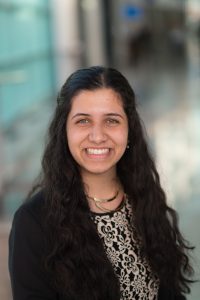
Aditi Sriram
Sriram is one of 11 Canadians heading to Oxford University next October, and among more than 100 standout scholars from around the world who won fully sponsored graduate Rhodes Scholarships.
For Sriram, her humble beginnings living in a low-income area close to Jane Street and Finch Avenue will shape her career trajectory.
“I grew up in a racialized community in Toronto and I remember seeing disparities between our neighbourhood schools compared to others,” Sriram says. “I’m a child of immigrants and it was clear to me that our community didn’t have the same things to offer as others in Toronto.”
She is interested in financial regulation and economic policy and has her eye set on moving to New York, the heart of the financial sector. She wants to better understand wealth accumulation and inequality, so that she can address systemic issues that perpetuate the cycle of poverty.
“I hope to dedicate my career to realizing a world where the benefits of our financial system are accessible to all.”
At Oxford, she plans to enroll in the Masters of Public Policy and Masters of Science in Public Policy Research, and hopes to complete her law degree afterwards.
Sriram is currently working as an analyst at Good & Well, an impact investing firm that provides equity investments of up to $500,000 in early stage businesses that demonstrate social purpose.
Earlier this year Sriram graduated from LFS’ BSc in Global Resource Systems program. It was a program that interested her when she was a high school student. However, travelling to the west coast to attend UBC wasn’t even a consideration for Sriram until she won a Loran Scholarship valued at $100,000 over four years.
“UBC was not on my radar until the Loran Scholarship opened up my world and encouraged me to look beyond Ontario,” she said. “I had to push myself out of my comfort zone. UBC had stellar programs across the board and provided a balance of a big university, with lots of resources, with the opportunity to join niche communities.”
She spent first year in Science One at UBC as her parents encouraged her to see if the pure sciences were a good fit, but she switched into LFS when she was accepted into its competitive Global Resource Systems (GRS) program in second year.
In GRS, students begin with a solid basis in academic sciences, then they design their course of study with relevant academic, volunteer, and international internships, with the goal of learning how to contribute to global equity, says Professor Les Lavkulich, GRS program director.
“Aditi is an exemplary alumna who represents the dedication we share for fostering student interests,” says Lavkulich. “Our GRS program begins with the motto, ‘follow your passion and you will make a difference.’”
Sriram says GRS allows students to develop their own worldviews as they strive to create change: “GRS is a community of bridge builders. Whether our students are interested in economics and political science, Indigenous peoples, or food and nutrition, we are united by our mission to make the world better.”
She’s gained many international experiences during her time at UBC – working for non-profits in Africa and the U.K., travelling to France to learn French, and to Japan to present at the International Students Summit on Food, Agriculture and Environment.
Through travel and school, her passion to bridge the gap between socioeconomic classes both locally and internationally has grown stronger.
Listen to Aditi’s interview on CKNW (29 minute mark)
Find out more about our undergraduate programs in our Future Students page.
Tagged with: 2021, Global Resource Systems, Undergraduate
Message from the Dean
Message from the Dean
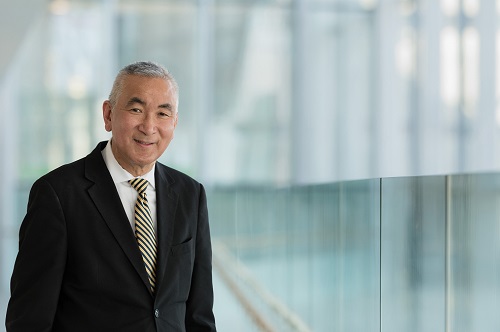
In this issue, we explore how student learning is changing.
While our faculty has been relatively strong at incorporating social issues and systems thinking into our curriculum, we recognize there’s still a long way to go. With the creation of two new positions in LFS, we’ll be making greater inroads at embedding equity, diversity, inclusion and Indigeneity (EDI.I) into our courses and rethinking how food systems courses can be taught.
Science-based programs have focused on data, facts and empirical research. Our aim is to place greater emphasis on social issues when searching for solutions, and to include Indigenous ways of knowing, culture and history into our research and teaching more often.
There aren’t any shortcuts, and it involves providing new knowledge and support to faculty members, as we all work towards training future food systems leaders to be prepared for challenges ahead.
We have a stellar example showing how one group of UBC undergraduate students collaborated with an Indigenous-led community organization to begin addressing urban food insecurity. Their passion and openness to learn about lived experiences different from their own, and their outstanding efforts led them to win first place at a global competition called Map the System.
In addition, this year the world has experienced climate-related emergencies on a scale never seen before. The frequency and intensity of droughts, rain storms, hurricanes, etc., is increasing. The damage left in their wake is finally making more people take notice. This is sorely needed because it’s time to change our behaviour, before it’s too late.
That’s why we asked some of our researchers who have been studying the impact of climate change on agriculture and its ecosystem services to answer the question: How can agriculture adapt to climate change?
There are some thought-provoking ideas in this issue of ReachOut. I hope you enjoy the read.
Take care and stay safe,
Rickey Yada
Dean and Professor, Faculty of Land and Food Systems
New Counsellor To Support Students
New Counsellor To Support Students
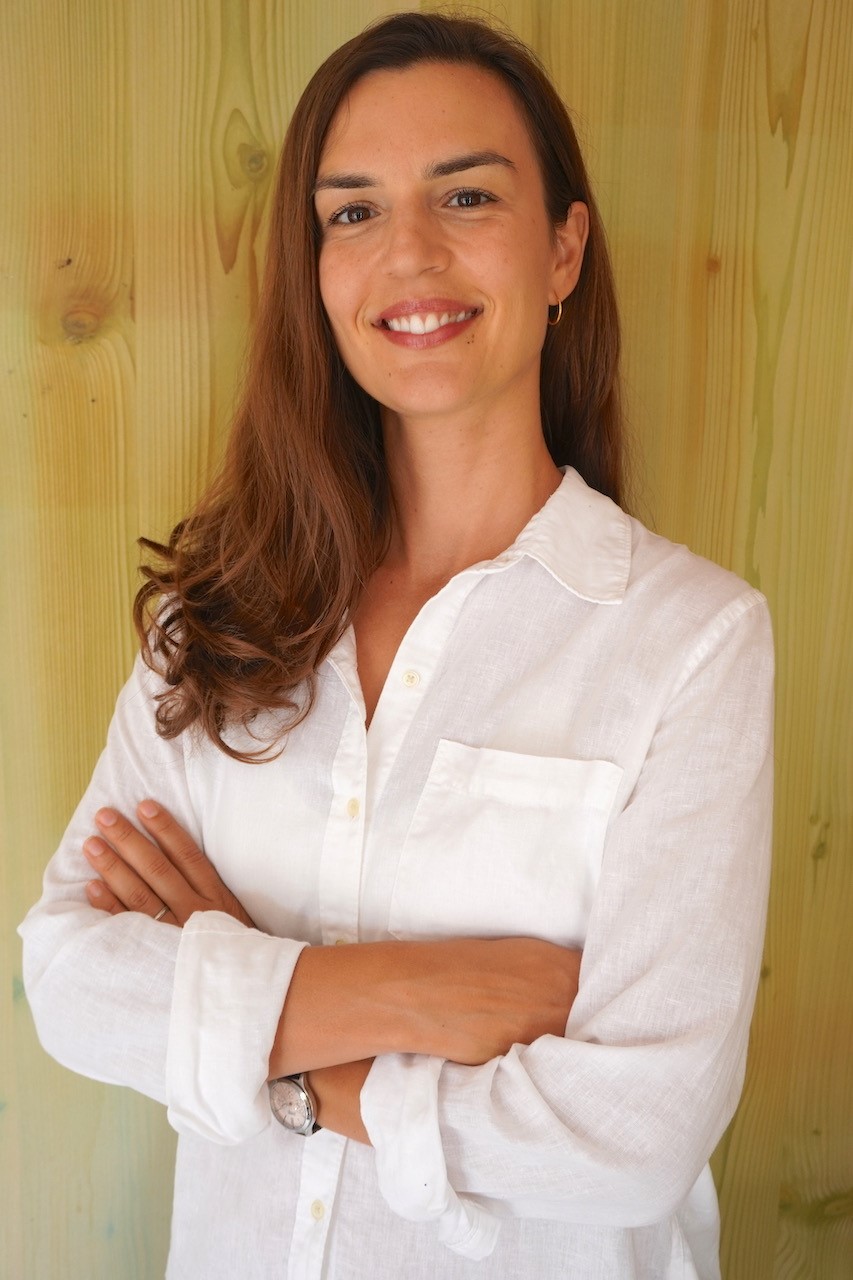
Nicole Adoranti, a Canadian Certified Counsellor, is the newest addition to the LFS community. In a newly created role, she will be the Embedded Counsellor to both Land and Food Systems and Forestry, providing single session or short-term counselling, triage and referrals to students, while also promoting mental health through the development of wellness programming.
Adoranti holds a Masters of Education in Counselling Psychology and has been a counsellor in both private practice and the post-secondary environment, having previously worked at the University of Toronto and New York University Abu Dhabi. Her experience in working with students from different cultures and backgrounds is one of the reasons she was drawn to Vancouver.
“I’m constantly intrigued or trying to learn more and in turn, checking my own personal beliefs and viewpoints. This position, with such a diverse group of students, will allow me to grow personally and professionally,” says Adoranti.
Adoranti also recognizes that post-secondary looks a lot different during a global pandemic: “I think that the return to campus feels really strange and I’ve heard a few people say how strange it is. One of my goals within the faculties is to foster a sense of community again by de-stigmatizing mental health issues and helping people connect to resources, because I do think the pandemic has made us feel really disjointed and disconnected.”
Throughout the years, Dr. Anthony (Tony) Yurkovich, an Agriculture alumni, and his wife Nancy, who has a background in nursing, have made significant contributions to LFS and Medicine.
During the pandemic, they also saw a need to prioritize mental health and supported the creation of this position: “Many university students feel an increased level of stress and anxiety due to the changes brought on by COVID-19. We are pleased that there is recognition of this and that we can be a part of making a difference in their mental wellbeing.”
In her role, Adoranti hopes to make mental health resources more readily available for everyone: “It doesn’t necessarily have to be a crisis situation that would draw someone to counselling, but rather development of themselves that complements what they’re already trying to do at UBC: getting an education, establishing a good career, and taking advantage of opportunities to build a really great life. I think that learning how to take care of our mental health is a part of that.”
